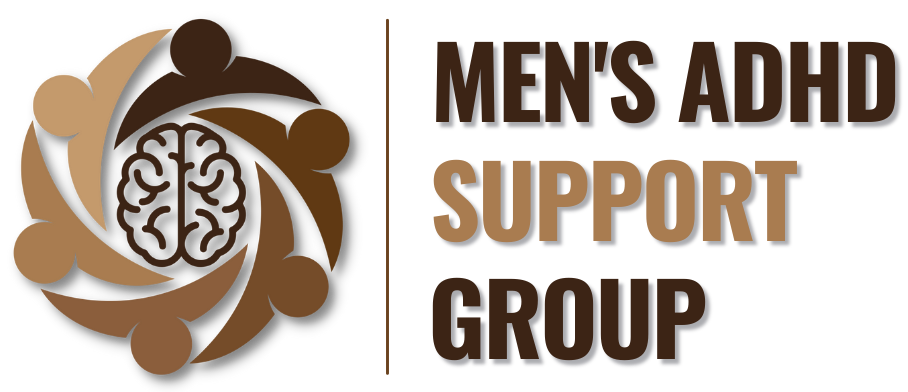ADHD and the Emotional Struggle For Men
If you’re a man over the age of 30 who has recently been diagnosed with ADHD, you’re not alone. In our Men’s ADHD Support Group on Facebook, 90% of our members are over the age of 25. I know that many people who have been newly diagnosed felt alone, as if they were outliers, but the truth is, many men struggle with ADHD and the emotions we deal with.
Because we have to address the elephant in the room, our society has conditioned us to believe that men should be strong, stoic, and unemotional. But here’s the thing–we’re human beings, not robots. We must acknowledge that it’s okay for men to have emotions, and it’s important to address them and express them healthily. This is particularly true for men with ADHD when we have to deal with emotional dysregulation and our struggles with heightened levels of stress and frustration and no actual knowledge of how to process these emotions, stress, and frustrations in constructive and creative ways.
The thing is, men over the age of 35 likely never had a parental figure who were open with their emotions or taught the importance of constructive ways to process stress and frustrations. Another thing that we struggle with is our communication skills, or, well, the lack thereof. This lack means that our abilities or even willingness to express ourselves sometimes cause consequences that are long-lasting for children with ADHD, that then follow us through adulthood.
As children, the mockery, shaming, and criticisms from peers, parents, and teachers towards neurodivergent children who are seen as different are extremely traumatizing. It has been estimated that children with ADHD or other types of neurodivergence receive an estimated 20,000 more criticisms by the age of 12 compared to their non-ADHD peers. This can significantly impact their self-esteem and lead to feelings of inadequacy, low self-worth, and difficulty in developing a positive sense of identity.
These traumas and struggles often lead to a crippling level of imposter syndrome and rejection of sensitivity dysphoria, which is often expressed by explosive anger or rage outbursts, acting-out behaviors in relationships, depression, workaholism, hyper-masculinity, self-abuse, addiction, and even violence towards others and themselves. It needs to be very clearly understood that many men with ADHD are in deep emotional suffering. In fact, men with ADHD who deal with suicidal ideation are 1.5 to 4 times more likely to commit suicide than their neurotypical counterparts, depending on comorbidities. (Balazs & Kereszteny, 2017)
But there’s good news–we can change this as a society. It’s important to get people to recognize that men with ADHD are human beings with emotions and that it’s a myth that men are a “less emotional” gender. In fact, a meta-study done by Tara Chaplin and the Department of Psychology, George Mason University, found that between the ages of 2-12, there were no gender differences in emotional expression, but after the age of 12, the differences become more pronounced, with boys becoming less expressive. (Chaplin, 2015)
Also, Dr. William Dodson, a world-renowned expert on ADHD, made a number of observations on helping children with ADHD; from his practice of over 30 years, he has emphasized the importance of providing support and encouragement to children with ADHD rather than criticism. He suggests using a “5:1” ratio of positive to negative interactions with children with ADHD, which can help to build their self-esteem and improve their overall well-being. By focusing on their strengths and accomplishments rather than their weaknesses and mistakes, parents and caregivers can help to foster a positive sense of self in children with ADHD.
The thing is, this ratio is just as effective for men with ADHD, regardless of if they were diagnosed early on or if they are just recently diagnosed. There can be an enormous change in men’s lives when they get psychiatric support, therapy, such as dialectical or cognitive-behavioral therapy, and make the lifestyle changes they need that improve their management of ADHD.
But we need more. We have to build a social circle that supports us, starting with a family or friend-circle that gives us the encouragement and love we need to help us manage our ADHD. We have to have external support to keep working to improve ourselves. When we have the positive reinforcement and accountability that we need, we don’t just live with ADHD but thrive with it.
That’s the goal of our organization. We have to do our part to support the emotional needs of men with ADHD. We can start by teaching men healthy ways to express their emotions and provide outlets for their feelings. We want also to teach families to use more effective Positive Parenting techniques for children and work in all populations to eliminate the unrealistic expectations that lead to toxic male behaviors that stem from a lack of healthy outlets for emotions for boys and men.
By addressing and supporting the emotional needs of men with ADHD, we can create a more emotionally healthy society for all. Join us in our journey to educate and bring about true change in how ADHD is managed in our society.
Sources:Attention-deficit/hyperactivity disorder and suicide: A systematic review
Judit Balazs and Agnes Kereszteny
World J Psychiatry. 2017 Mar 22; 7(1): 44–59Gender and Emotion Expression: A Developmental Contextual Perspective
Tara M. Chaplin
Emot Rev. Author manuscript; available in PMC 2015 Jun 16.If you want to help support our efforts, please consider donating or volunteering so we can keep Inspiring, Educating, and Empowering men to thrive with their ADHD.



